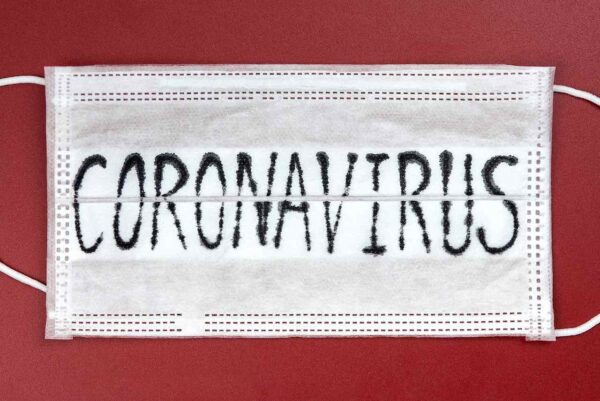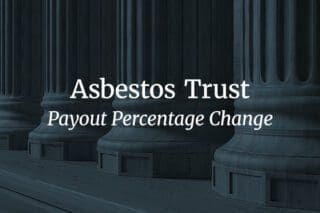
The coronavirus pandemic continues to affect those around the world. Many residents of Libby, Montana, are at increased risk of serious COVID-19 complications. Libby is home to the infamous asbestos-contaminated vermiculite mine. The mine led to an increased rate of asbestos-related diseases.
Asbestos illnesses can weaken the lungs and immune system. As a result, many Libby citizens face additional risks from COVID-19 complications. In addition to the pandemic, asbestos-related deaths and diagnoses continue in the area.
Existing Health Risks From Libby Vermiculite Mining
In the 1920s, the Zonolite Company opened a vermiculite mine in Libby, Montana. The vermiculite was contaminated with asbestos. Manufacturers used vermiculite in products such as insulation and potting soil.
Anyone involved in mining the mineral or producing vermiculite products risks asbestos exposure. If individuals inhale even small amounts of asbestos, they can develop serious health conditions. This includes mesothelioma and lung cancer.
Increased Risk of COVID-19 Complications for Libby Residents
Many Libby residents already experience uncomfortable symptoms from asbestos diseases. Symptoms may include dry cough, decreased lung capacity and shortness of breath. These conditions overlap with signs of COVID-19. This could lead to worsened symptoms or difficulty diagnosing COVID-19 as a separate illness.
Additionally, Libby residents with compromised lungs and respiratory systems are more likely to develop a serious case of COVID-19. This is because both COVID-19 and asbestos commonly affect the respiratory system.
NPR reports nearly 1 in 10 Libby residents have an asbestos disease.
Pleural mesothelioma, asbestosis and lung cancer all impact asbestos victims’ lungs. Even less serious asbestos conditions, such as pleural effusions or pleural thickening, may make COVID-19 worse.
Furthermore, all cancer patients are considered high-risk individuals. Their immune systems are often compromised while undergoing cancer treatments such as chemotherapy. This can make it difficult for mesothelioma patients to fight the virus.
How Bad Is the Pandemic in Libby, MT?
Lincoln County avoided rising cases in the early months of the pandemic with only eight total cases by July 1, 2020. However, relaxed restrictions and summer gatherings may have contributed to a new rise in cases.
- By July 14, there were 40 cases in Lincoln County
- By September 1, there were 89 cases in Lincoln County
- By October 1, there were 131 cases in Lincoln County
- By November 1, there were 329 cases in Lincoln County
- By November 23, there were 683 cases in Lincoln County
Libby is the seat of Lincoln County, Montana. The entire county has a population of just under 20,000.
As these numbers begin to rise, residents have expressed frustration. In an interview with NPR, Libby resident Frank Fahland mentioned how seriously he takes COVID-19.
“If it hadn’t been for COVID my will would not be written,” Fahland said. “But it is now. It’s filed in the courthouse and the whole goddamn thing is done.”
Fahland isn’t alone in worries about COVID spread in rural Montana. In a press conference on November 12th, Governor Steve Bullock expressed economic worries. Many rural Montana towns depend on tourist dollars during the ski season. With increasing cases, tourists may avoid towns such as Libby. This could leave local economies without needed revenue.
Without new federal relief regulations, the Montana governor is unable to issue pandemic assistance.
How Can High-Risk Individuals Protect Themselves Against COVID-19?
Libby asbestos victims face both asbestos risks and COVID-19 complications. Because of their increased risk, pandemic restrictions are important to ensure safety.
Mesothelioma patients should follow CDC guidelines as strictly as possible. As of right now, the best way to protect oneself against the coronavirus is to avoid contact with it.
CDC information shows COVID-19 spreads most commonly through contact with infected people. Infected individuals may not show symptoms. The virus can also spread through airborne contact or contact with contaminated surfaces.
To avoid the spread of the coronavirus, the CDC recommends individuals:
- Wash their hands often
- Avoid contact with other people, whether they appear healthy or sick
- Wear masks to prevent airborne transmission
- Cover coughs and sneezes and immediately dispose of tissues
- Clean frequently touched surfaces often
- Monitor themselves and anyone they live with for any symptoms
Asbestos victims, including those in Libby, should adhere to all CDC recommendations. Precautions are particularly important as cases rise in the United States.




